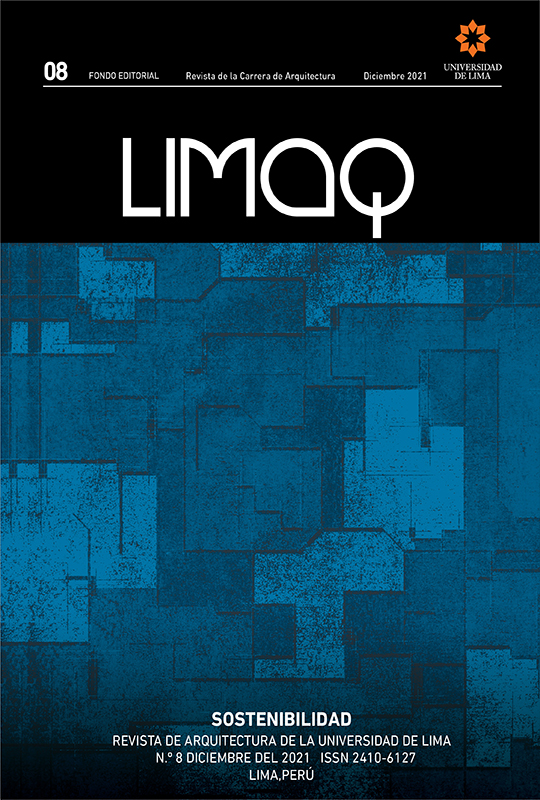New Traditional Architecture with Low Energy Consumption in the Peruvian Amazon
DOI:
https://doi.org/10.26439/limaq2021.n008.5554Keywords:
equatorial climate, wood, natural air conditioner (ventilation), traditional constructions, sustainable architectureAbstract
In the city of Iquitos, in the heart of the Peruvian Amazon, the materials used for solid or permanent constructions (sand, cement, bricks) are called noble, implying that other materials, such as wood, for example, are not. Wood, however, is of primary importance in the traditional constructions of local cultures
and for most humble citizens living in urban areas. This natural material presents many advantages, such as a lower ecological impact (carbon footprint), a lower construction costs and better thermal insulation (not passive because it does not accumulate heat). We want to present an architectural work carried out in
Iquitos in 2012-2013, with local construction wood and inspired by the ventilation principles of traditional local constructions, which has responded to the passage of time while maintaining its efficiency in terms of energy performance.


.jpg)












